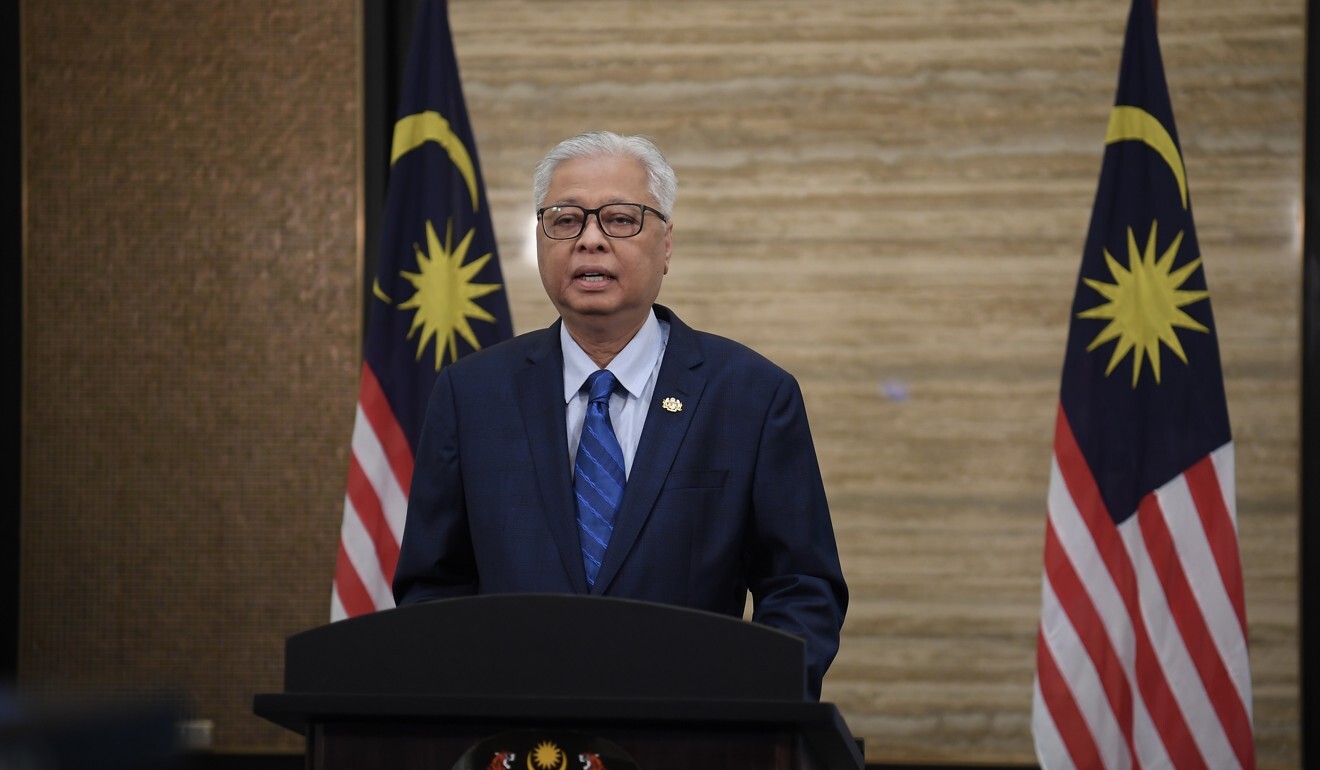
Malaysia’s political ceasefire is a move towards sensible reforms and away from back-stabbing, at long last
- The opposition has pledged to support the Ismail Sabri administration’s bills, including the 2022 budget, if it carries out several reforms
- These include amending the constitution to end party-hopping; lowering the voting age to 18; and capping the prime minister’s tenure at 10 years
Malaysia’s ruling coalition signs landmark pact with opposition, in boost to PM Ismail Sabri
Against this backdrop, Ismail Sabri’s government has reached a confidence and supply understanding with opposition coalition Pakatan Harapan that provides for a truce until July 31 next year. The agreement is a common parliamentary mechanism for minority governments or those with slim majorities to continue to rule, with the opposition agreeing not to cause their collapse. In Malaysia, it is a groundbreaking feat.
The government agreed to propose legislation to raise the ceiling for federal borrowing from 60 per cent to 65 per cent of GDP in October, in part to facilitate the injection of a 45 billion ringgit (US$10.8 billion) special stimulus plan.
It will also amend the national constitution to end party hopping, deemed as the cause of the collapse of the Pakatan Harapan government; lower the voting age from 21 to 18, and implement automatic voter registration; limit the tenure of the prime minister to a maximum of 10 years; strengthen parliament and parliamentary committees; and provide equal monetary allocations to opposition MPs who are part of the confidence and supply understanding.

01:43
Malaysian Prime Minister Muhyiddin Yassin resigns after losing majority support in parliament
These proposed reforms are aimed at levelling the playing field between the government and the opposition. In return, the opposition will not vote against supply bills such as the budget and other bills that amount to a confidence vote.
Specifically, Pakatan Harapan has committed in the memorandum to either support these government bills, if fully and genuinely consulted, or to simply abstain from these votes.
Malaysian PM Ismail Sabri’s reform pledge in spotlight as parliament meets
A history of turbulence
At the height of its power, Umno alone won 109 of 219 federal seats in 2004. In the 2008 and 2013 general elections, the party won 79 and 88 seats respectively in the 222-seat Malaysian parliament.
Pakatan Harapan won the historic 14th general elections in 2018 that ended the Umno-Barisan Nasional rule for the first time since the country’s independence in 1957. Umno won only 54 seats in that election, with 15 of those MPs – led by current home minister Hamzah Zainuddin – crossing over to former premier Muhyiddin’s Parti Pribumi Bersatu Malaysia (Bersatu) in February 2019.
In February last year, a parliamentary coup was orchestrated by then opposition parties Umno, Gabungan Parti Sarawak, and the Pan Malaysian Islamic Party (PAS); a renegade Keadilan group led by current international trade and industry minister Azmin Ali; along with Muhyiddin and Hamzah’s group of Bersatu MPs.
But this makeshift coalition, led by Muhyiddin, struggled against internal revolt fomented by Umno’s Zahid and Najib. With a slim majority in parliament, Muhyiddin was trying to entice MPs from the opposition to cross over, only to find that few wanted to back a seemingly sinking ship.

DAP’s Loke Siew Fook first mooted the idea of a confidence and supply agreement in August last year to effect a political ceasefire for the nation to focus on fighting Covid-19.
Just a month later, opposition leader Anwar announced that he had a “strong, formidable and convincing” majority, presumably with the support of Zahid’s Umno group. Facing this internal threat, Muhyiddin looked to the palace to suspend parliament and impose emergency rule.
His first attempt was rejected in October, around which time informal talks of a confidence and supply understanding took place between the government and the opposition. But the Muhyiddin administration was tempted by the unfettered powers conferred by emergency rule, which the king granted in January.
The emergency did not save Muhyiddin. On August 16, he finally fell after 14 Umno MPs withdrew their support for his government. Before his political demise, Muhyiddin offered a reform package upon negotiations with DAP’s Tony Pua and Ong Kian Ming. But it was too late.
Will Sultan of Johor’s social media post prompt Malaysia to rethink cost increases to MM2H visa?
While Ismail Sabri is from Umno, he is not in sync with Zahid – the new government is essentially a resurrected Muhyiddin coalition.
To prevent blackmail from Zahid’s group or even Azmin Ali’s group, who demanded Azmin be made deputy prime minister, Ismail Sabri met Pakatan Harapan leaders and committed his government to a confidence and supply negotiation a day before he announced his cabinet list on August 27.
Opposition inroads
The deal is a game changer. Ever since Pakatan Harapan made significant inroads in 2008, the ruling Umno government tried everything – including jailing Anwar – to eliminate the opposition.
The Muhyiddin government, despite its slim majority, had no qualms using state apparatuses such as the anti-corruption commission to persecute political opponents both from within his coalition and from the opposition.
And here we are, at the memorandum for political stability – a grudging acceptance that the government and the opposition need to coexist via the parliamentary structure.

Malaysia’s much-emasculated parliament may even have a new lease of life as the avenue for bipartisan consensus if the promises of having an independent parliamentary service and establishing more parliamentary committees overseeing ministries are realised.
After the Umno-led Barisan Nasional coalition lost its two-thirds majority in parliament in the 2008 general elections, former premier Najib avoided introducing constitutional amendments for the entirety of his nine-year tenure.
The amendment to lower the voting age to 18 was passed in July 2019 in a bipartisan manner during the Pakatan Harapan government era. Ismail was at the time parliamentary opposition leader.
If the proposed reforms that require constitutional amendments, i.e. a two-thirds majority, are accepted by parliament, other sensible reforms would be possible too.
Further, according to the Election Commission in 2019, lowering the voting age to 18 and introducing automatic registration would add 7.8 million new voters to the electoral roll, which currently has approximately 15 million registered voters.
The massive influx of young voters would certainly make the outcome of the next election even more unpredictable and possibly anti-establishment.
The deal stipulates that parliament will not be dissolved before July 31 next year. It must be dissolved by July 16, 2023, and elections must be held before September 16 that year.
Effectively, the Malaysian parliament still has nearly two years to allow for the potential new landscape to take root.
Much as the deal was only possible because of Ismail Sabri’s desperation to avoid sharing the same fate as Muhyiddin – being a lame duck held ransom by coalition allies – the signing of this unprecedented understanding is still a breakthrough and a significant event in Malaysia’s political history.
Liew Chin Tong is a former deputy defence minister and national political education director of the DAP, a constituent party of Pakatan Harapan

